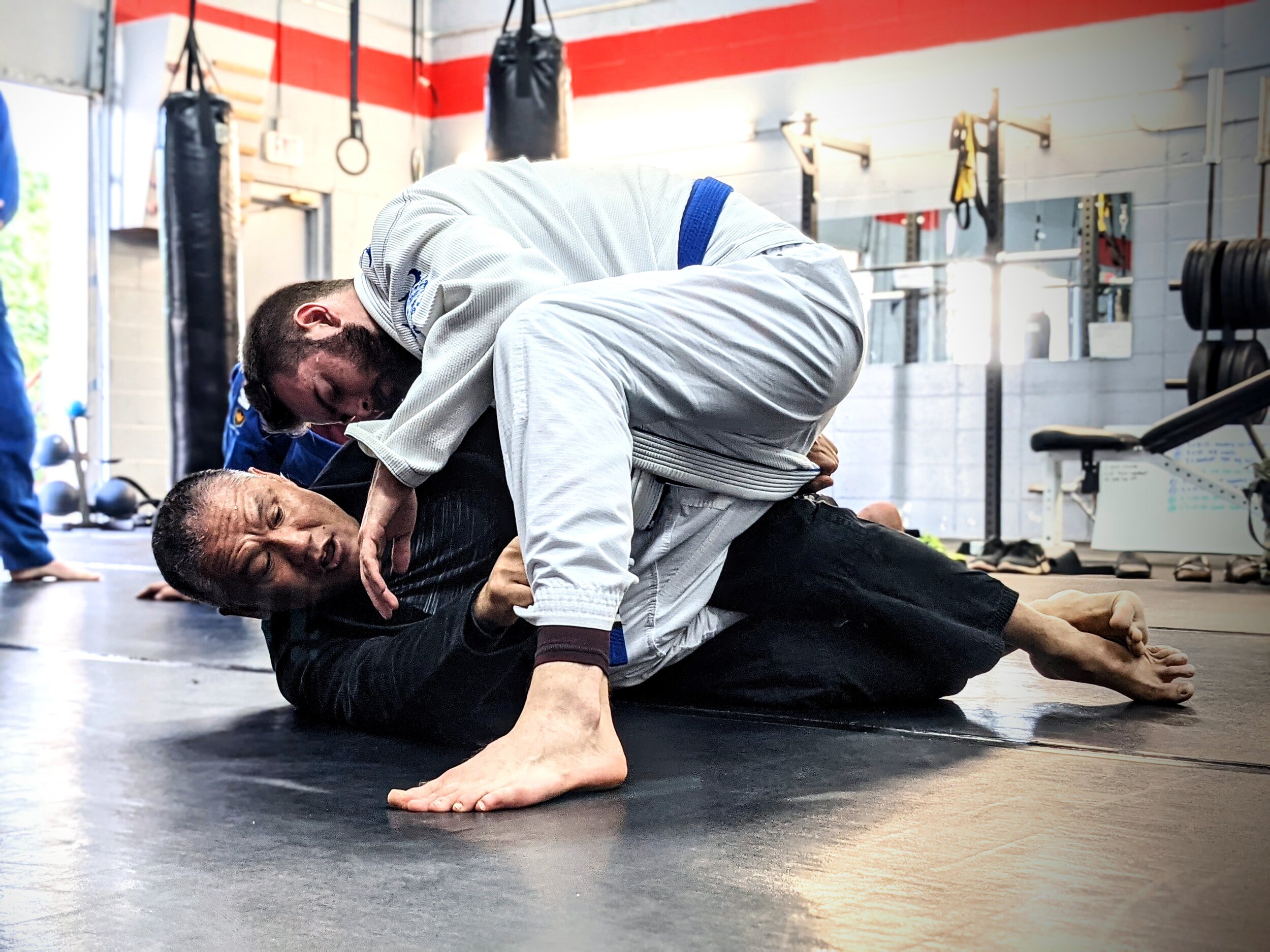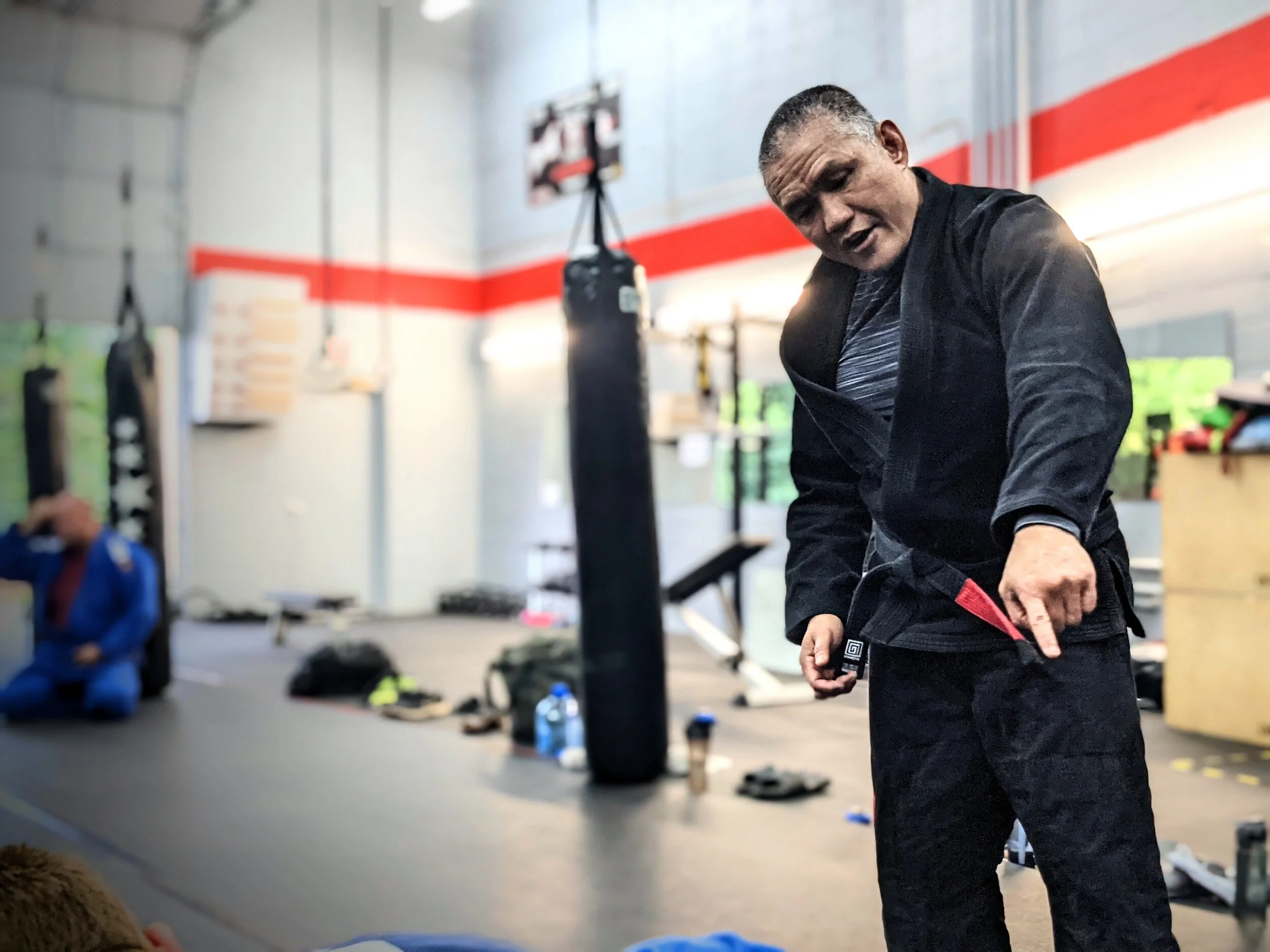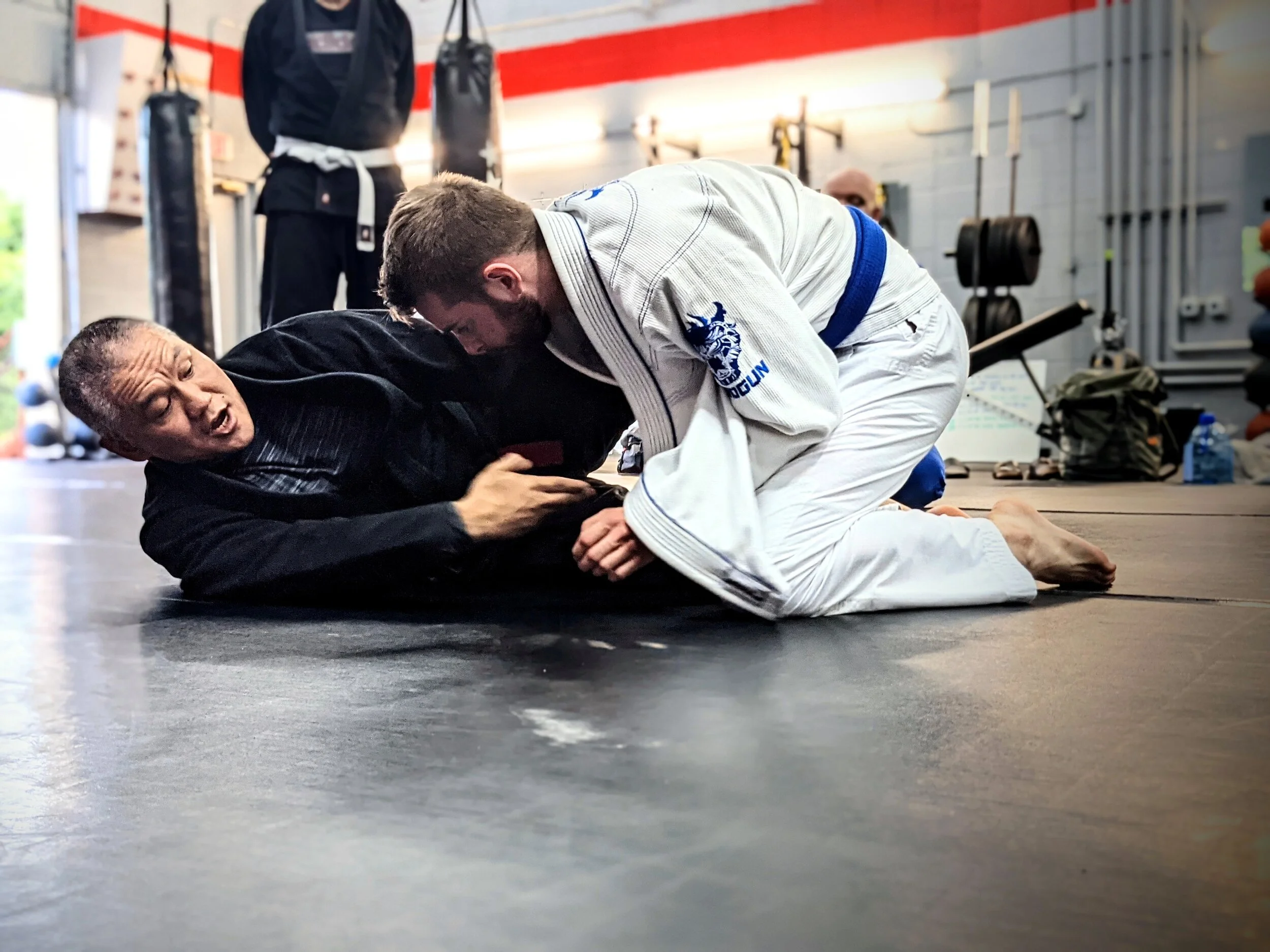
BRAZILIAN JIU-JITSU
What’s to Love About BJJ
Throughout generations, many Martial Art systems and styles have claimed to train people to beat multiple, stronger, or sizable opponents. Most of these assertions have proven inflated once tested. Then in 1993 the Gracie Family—the vanguards and pioneers of Brazilian Jiu-Jitsu—and their protegee, Royce Gracie, came into the UFC’s limelight by efficiently showing how their lethal style has, for decades, been able to overcome much bigger and stronger opponents.
As Royce Gracie dominated his opponents in the early years of the UFC, the world of Martial Arts paid attention. They discovered that the Gracies have indeed proven their superior system time and time again. People found decades-worth of well documented history and wins. Scores of black and white videos began to surface on the internet. Every Martial Arts aficionado and pro fighter in the world decided to learn BJJ. An evolution took place and Mixed Martial Arts (MMA) was born—with BJJ at its epicenter.
Though the Gracie family no longer remains undefeated, their legacy and style lives and breathes in every MMA fighter today. It would be foolish to fight in MMA without training defenses against the basic takedowns and submission-holds of BJJ.
Technique Over Strength
Brazilian Jiu-Jitsu has a simple strategy: Take the opponent to the ground—where most fights usually end. Once you get to a superior position, you can: (1.) apply a submission-hold in the form of an armlock, leglock, choke, or strangulation, (2.) strike with impunity, or (3.) control the opponent until the authorities arrive. No other Martial Art gives you these choices. This is the ingenuity behind BJJ.
The submission holds are done by using a greater percentage of the BJJ practitioner's body to a lesser percentage of an attacker’s body. This gives the practitioner leverage since the attacker will have difficulty generating power with strikes from the ground. If the BJJ practitioner has a smaller frame, he or she now has a direct path to victory—not just some vague notion of a secret death strike or a Vulcan nerve pinch.
Every BJJ class has a grappling part; we ask all students to "spar" or "roll" without any striking, eye gouging, Karate chopping, or eagle claw gripping. All submission-holds in BJJ allow one to "tap-out", signaling surrender when an armlock or choke has anchored. Jigoro Kano, the founder of Judo, invented this method of training. The genius behind this drill allows a person to apply BJJ techniques against a fully resisting opponent, as opposed to merely hitting the air.
If you want to learn to subdue or put an attacker to sleep without throwing a punch, try BJJ. It is one of the bedrock skills every MMA fighter should have.
Dig deep. Level Up
Jeremiah & Caryl Veloso




